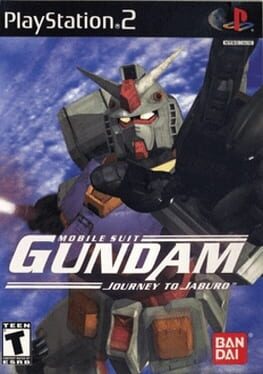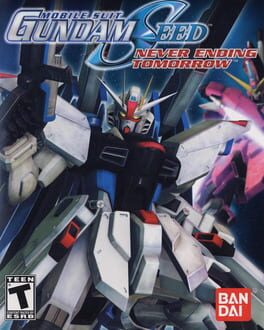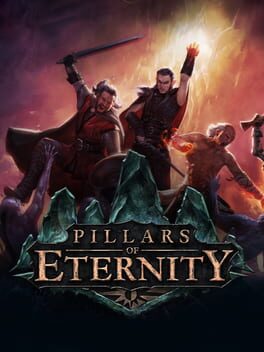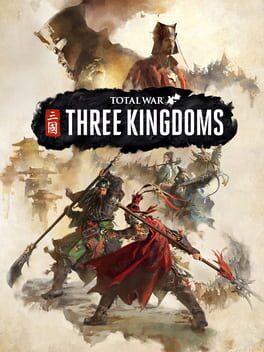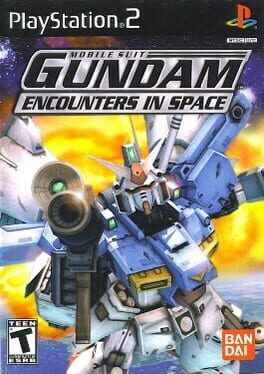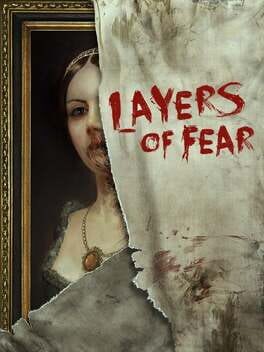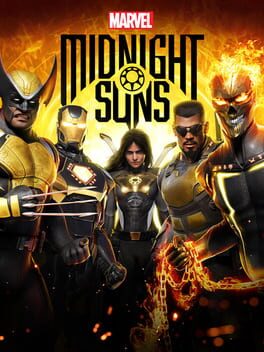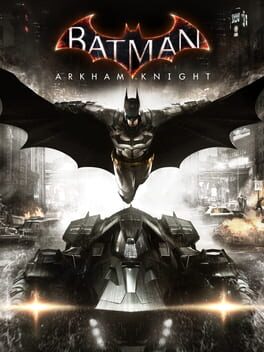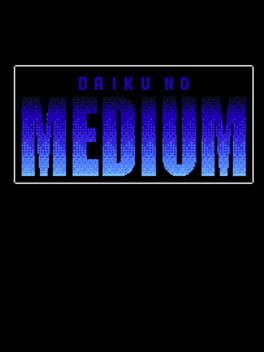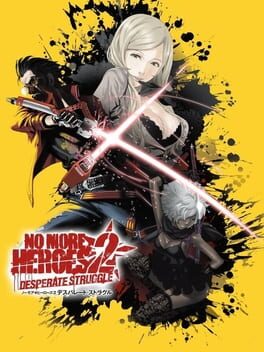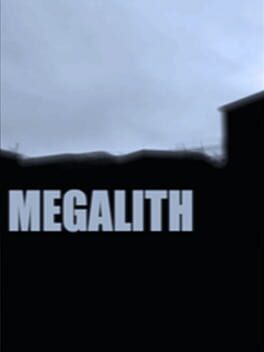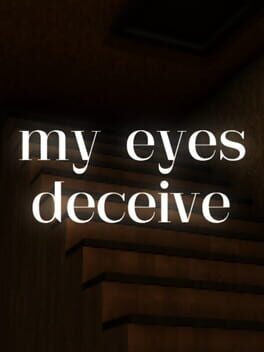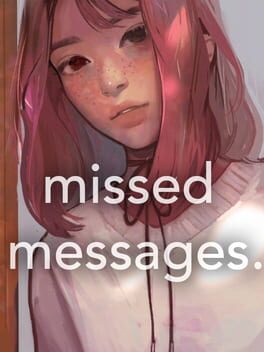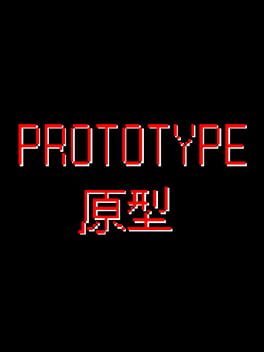Probably the clunkiest of the PS2 Gundam entries, Journey to Jaburo leans into weightiness and sluggish controls to facilitate realism. Unfortunately, almost every enemy is a bullet sponge in order to produce a semblance of difficulty, which leads to ridiculous happenings: weak beam weapons, bad hitboxes, and generally poor game feel. Even so, adapting to the game's odd controls was somewhat fun and allowed me to reach a level of competency by the campaign's last mission.
There are good points. The visuals are more than up to snuff 20 years down the line, thanks to some graphical tricks. The haze in desert levels is awesome, foliage in forests is thick and adds a layer to the usual rhythm of combat, and the in-game cutscenes are just cool overall. Music from 0079 is present, and gives the whole game some authenticity - playing through the anime's story is one thing, but hearing its tracks while you're charging through enemy mechs makes it all a little more bearable.
Journey to Jaburo is not that fun, but it is a faithful adaptation of 0079. It's also a companion piece to the much better Encounters in Space, and suffers as a result. Worth playing? Probably not, unless you're a big fan of the Universal Century timeline.
There are good points. The visuals are more than up to snuff 20 years down the line, thanks to some graphical tricks. The haze in desert levels is awesome, foliage in forests is thick and adds a layer to the usual rhythm of combat, and the in-game cutscenes are just cool overall. Music from 0079 is present, and gives the whole game some authenticity - playing through the anime's story is one thing, but hearing its tracks while you're charging through enemy mechs makes it all a little more bearable.
Journey to Jaburo is not that fun, but it is a faithful adaptation of 0079. It's also a companion piece to the much better Encounters in Space, and suffers as a result. Worth playing? Probably not, unless you're a big fan of the Universal Century timeline.
2015
I've been grappling with this game for a little over two years now, and I feel like throwing in the towel. The same thing would always happen: I'd open it every couple of months, play it from a day to a week, then I'd quit out of disinterest or pure repulsion. There is nothing here that I like. Lore is dumped in ungodly amounts, the prose is purple, the music sucks, the combat is micromanagement hell, companions are too flat, it looks ugly, backer NPCs are fucking EVERYWHERE and deliver nothing of value, and the story is boring.
Of course, you could pick any of the aforementioned elements and go "nuh uh, that was actually good!" and sure, you could do that. I think combat is the most easily defensible of my complaints: it's reactive, requires no pre-buffing, and forces you to use everybody and their abilities to best your foes. In-practice however, it felt like driving during rush hour - watching companions slap around enemies in place while stopping very frequently to cast new spells and abilities in the hopes of ending the encounter quicker - it's a dire equivalent to slowly inching your car up in traffic while you sit there, bored with nothing to do. What's most annoying is how by default companions stand slack-jawed after killing an enemy: there's a whole battlefield out there dickhead, go get some action! What the hell happened to auto-attack!
I don't like this game very much.
Of course, you could pick any of the aforementioned elements and go "nuh uh, that was actually good!" and sure, you could do that. I think combat is the most easily defensible of my complaints: it's reactive, requires no pre-buffing, and forces you to use everybody and their abilities to best your foes. In-practice however, it felt like driving during rush hour - watching companions slap around enemies in place while stopping very frequently to cast new spells and abilities in the hopes of ending the encounter quicker - it's a dire equivalent to slowly inching your car up in traffic while you sit there, bored with nothing to do. What's most annoying is how by default companions stand slack-jawed after killing an enemy: there's a whole battlefield out there dickhead, go get some action! What the hell happened to auto-attack!
I don't like this game very much.
My experience with Total War: Three Kingdoms (or TW3K) was affected by two major factors:
1. Romance of the Three Kingdoms (abbreviated to RoTK here) is one of my favorite stories, and I always enjoy adaptations of it to some degree.
2. I had never played a Total War game before this one.
The second point is self-explanatory, but the first could do with some context. RoTK is a lengthy tale about many things: the dangers of pride, the necessity of friendship, and the double-edged sword that is ambition. It chronicles the rise and fall of dynasties, the adventures and deaths of great men, and much more. Despite having a ridiculously large roster of characters, many of them remain iconic to this day. Arguably, it's one of the most famous novels ever written.
So how the hell do you adapt it into a strategy game?
The smart answer is you don't, or at least distance yourself from the idea of strict adaptational faithfulness. TW3K keeps the setting but alters the story, allowing for more player agency and action. Each campaign starts with an immediate enemy to pursue and opportunities to go off the beaten path, creating real choices from the get-go. The game embraces a sandbox approach and encourages the player to expand in any way they choose. It's an effective design for a strategy game, mirroring Civ and other 4X titles without straying too far from RoTK. This is bolstered by the unique mechanics each faction holds, ensuring plenty of varied playthroughs.
Generals having traits like greed or carelessness is a great way of connecting personality and gameplay: a cautious character may have a buff to cunning but a penalty to instinct, leading them to be proficient at giving orders but rather helpless in the heat of combat. With this system, characters resemble their novel counterparts and have tangible differences from one another: Sima Yi might not be chopping off heads like Lu Bu, but he's the go-to guy for supporting a battalion of archers.
One of my favorite parts of TW3K is the diplomatic layer. While RoTK has grand speeches and deep conversations, talks in this game are impactful and quick. Alliances can turn the tide of war, and trade can stop starvation or bankruptcy. Understanding the quirks of each leader is key to success, especially in the early game. There have been times when I enjoyed a fruitful negotiation more than a grand siege, and that's a testament to the game's utter devotion to strategy more than anything else.
Speaking of strategy and sieges, the battles are of a remarkably high quality. I understand that's Total War's strength, and as a newcomer, I've had a terrific time playing through them. Units have different strengths and weaknesses, and figuring out the best configurations for your armies isn't a simple affair. In addition to the systems in play like morale and character abilities, duels add a cinematic flair to battles. Watching massive armies clash while generals duel undisturbed in the middle is awesome and straight out of RoTK, it gives a whole new level of memorability on top of the already polished mechanics.
TW3K is stacked in every department, but the highest of its competencies is its design. It’s an excellent strategy sandbox that respects the player’s time, rewards smart thinking, and holds a lot of tactical systems without being overwhelming. Without a doubt, this is a must-play, RoTK fan or not.
Side note: If you’re interested in the game but want to learn more about RoTK, check out the first few episodes of Three Kingdoms (2010). The actor for Cao Cao is a riot.
1. Romance of the Three Kingdoms (abbreviated to RoTK here) is one of my favorite stories, and I always enjoy adaptations of it to some degree.
2. I had never played a Total War game before this one.
The second point is self-explanatory, but the first could do with some context. RoTK is a lengthy tale about many things: the dangers of pride, the necessity of friendship, and the double-edged sword that is ambition. It chronicles the rise and fall of dynasties, the adventures and deaths of great men, and much more. Despite having a ridiculously large roster of characters, many of them remain iconic to this day. Arguably, it's one of the most famous novels ever written.
So how the hell do you adapt it into a strategy game?
The smart answer is you don't, or at least distance yourself from the idea of strict adaptational faithfulness. TW3K keeps the setting but alters the story, allowing for more player agency and action. Each campaign starts with an immediate enemy to pursue and opportunities to go off the beaten path, creating real choices from the get-go. The game embraces a sandbox approach and encourages the player to expand in any way they choose. It's an effective design for a strategy game, mirroring Civ and other 4X titles without straying too far from RoTK. This is bolstered by the unique mechanics each faction holds, ensuring plenty of varied playthroughs.
Generals having traits like greed or carelessness is a great way of connecting personality and gameplay: a cautious character may have a buff to cunning but a penalty to instinct, leading them to be proficient at giving orders but rather helpless in the heat of combat. With this system, characters resemble their novel counterparts and have tangible differences from one another: Sima Yi might not be chopping off heads like Lu Bu, but he's the go-to guy for supporting a battalion of archers.
One of my favorite parts of TW3K is the diplomatic layer. While RoTK has grand speeches and deep conversations, talks in this game are impactful and quick. Alliances can turn the tide of war, and trade can stop starvation or bankruptcy. Understanding the quirks of each leader is key to success, especially in the early game. There have been times when I enjoyed a fruitful negotiation more than a grand siege, and that's a testament to the game's utter devotion to strategy more than anything else.
Speaking of strategy and sieges, the battles are of a remarkably high quality. I understand that's Total War's strength, and as a newcomer, I've had a terrific time playing through them. Units have different strengths and weaknesses, and figuring out the best configurations for your armies isn't a simple affair. In addition to the systems in play like morale and character abilities, duels add a cinematic flair to battles. Watching massive armies clash while generals duel undisturbed in the middle is awesome and straight out of RoTK, it gives a whole new level of memorability on top of the already polished mechanics.
TW3K is stacked in every department, but the highest of its competencies is its design. It’s an excellent strategy sandbox that respects the player’s time, rewards smart thinking, and holds a lot of tactical systems without being overwhelming. Without a doubt, this is a must-play, RoTK fan or not.
Side note: If you’re interested in the game but want to learn more about RoTK, check out the first few episodes of Three Kingdoms (2010). The actor for Cao Cao is a riot.
So far this is my favorite of the PS2 Gundam games. It captures 79 perfectly - if you're Amuro, you're on easy street. If you're anyone else, every battle will be the most vicious dogfight of your life. The character campaigns are cool and show different sides of the OYW, and the combat is excellent. The lock-on problem of Gundam vs. isn't solved, but everything feels so smooth it's easy to ignore. Going hard on the thrusters and spinning through space feels incredible, and maneuverability varies between suits in subtle but appreciable ways. While the controls are easy to understand, mastering them is a different story. In a typical battle, you'll need to dodge projectiles, manage ammo, eliminate enemies quickly, and more if you want to survive. Learning the ropes was a challenging but rewarding experience, and by the end of my playthrough, I felt like I had advanced a lot in terms of skill. Certainly one of the best mecha action games on the PS2, and worth playing if you're a fan of Gundam.
2016
This review contains spoilers
It's bad. I'll give one example. There's a hallway where you can see a painting of a dog at the end of it. As you walk forward, you can hear a dog barking, and when you get to the end of the hallway, the painting SHIFTS into a painting of a HELLDOG in HELL and the dog stops barking. This is the style of "horror" that Bloober Team sticks with from start to finish, and it's just as lacking as it sounds. The story is legible and fine to piece together, but wholly two-dimensional. Bad dad is bad, alcoholism, total death of family. Not breaking any new ground there, buddy.
It does look pretty, though!
It does look pretty, though!
It just depends on whether or not you like superheroes. If you don't, it won't change your mind on them. If you do, it's a fun ~50 hour game with a lot of meat on its bones. The dialogue is lighthearted and ultimately persistent - it got chuckles out of me through quantity, not quality. There's a bit too much technobabble in the cutscenes, and hearing characters say "Erm, could you repeat that in ENGLISH, doc???" for the billionth time did get an eye-roll from me. The story is wholly original which is nice, and the variety of heroes here means that you'll find yourself attached to somebody, eventually. There's a support system in place mechanically identical to FE Three Houses, and it works just fine. Getting close to different heroes means new combat perks, and there are some solid mechanics in place to hasten development. I enjoyed Wolverine's support the most, as it was the most well-rounded in covering his character.
I will echo the sentiment that the combat is the best part of the game - though I didn't see it that way at the beginning. The early game is rough. Enemies spam attacks that stun your allies, you don't have many ways to counter things, and the constant reinforcements are annoying as hell... It's just a bad time all around. The mid and late game are where it's at: better enemy variety, varied objectives, and deck-building opportunities save the whole experience. Heroes that you could bin earlier as "low-damage" or "too situational" become viable as utility characters, thinning enemy numbers or providing buffs. It's at this point where the hand of Firaxis is most obvious, equalizing the playing field and ensuring you can have fun with most setups.
Midnight Suns is fun, has a big budget, and is finely focused even if the delivery is flawed. It's a flavor of SRPG that's quite unique, and one we'll probably never see again considering how hard it flopped commercially. Even so, I'm excited to see what Firaxis comes up with next.
I will echo the sentiment that the combat is the best part of the game - though I didn't see it that way at the beginning. The early game is rough. Enemies spam attacks that stun your allies, you don't have many ways to counter things, and the constant reinforcements are annoying as hell... It's just a bad time all around. The mid and late game are where it's at: better enemy variety, varied objectives, and deck-building opportunities save the whole experience. Heroes that you could bin earlier as "low-damage" or "too situational" become viable as utility characters, thinning enemy numbers or providing buffs. It's at this point where the hand of Firaxis is most obvious, equalizing the playing field and ensuring you can have fun with most setups.
Midnight Suns is fun, has a big budget, and is finely focused even if the delivery is flawed. It's a flavor of SRPG that's quite unique, and one we'll probably never see again considering how hard it flopped commercially. Even so, I'm excited to see what Firaxis comes up with next.
This review contains spoilers
Released at the midpoint of the tens, Arkham Knight encompasses the best and worst AAA gaming had to offer in that specific period: Jaw-dropping graphics, perfect voice acting courtesy of Hamill and Conroy, and an awful, choppy launch. The deflating reveal of the Arkham Knight's identity didn't help matters either. But is that all the game is, a disaster and nothing more?
No, not really - it's just mediocre. Scarecrow takes the spot of "Overanalyzing asshole that shouts from the PA system" from Hugo Strange this time around, and all of his dialogue is repetitive. The militia side missions feel like Ubisoft-tier padding with no meaningful variance outside of enemy placement, and apparently the Riddler became a Top Gear nut in between games 'cause his whole personality is silly car challenges. Most of the villain quests are one-note in design, but I quite liked Two-Face's missions. They're simple, encourage speed, and push the player to use tools to maximize damage in a short window of time. This leads right into the combat, which I feel excels when the goal is to eliminate targets as fast as possible - the abundance of techniques ensures it never gets stale. My opinion on freeflow combat over the years has fluctuated from 'genius' to 'braindead' to today, where the most passion I can muster for it is a half-hearted 'okay'. At its best, it's a game of rhythm, but most of the time you're dazzling a big guy with your cape and mashing buttons. The predator sections are fun, no real complaints there. I used to be a bit hard on it for being detective mode-heavy, but considering how Batman's whole schtick is preparedness and knowing everything before acting, it's a necessary evil.
My feelings on the story go back and forth, mostly because of Mark Hamill's performance. It's absolute peak, and makes everything bearable when he's on screen. I initially thought seeing Joker prance around in Batman's mind would be incredibly annoying, especially after his permanent end in City. I thought wrong, as he's definitely the best part of the plot. Most of the other elements I'm not too fond of, the Arkham Knight especially. Using Jason Todd is predictable but not a terrible choice, it's just that he's got nothing good in terms of gameplay or plot. There's what, a couple of tank sections and a prolonged predator section? It feels like a real dud.
I don't like that the elements in this game make me flip-flop from liking it to not. There are too many weak parts for me to really enjoy it, but the amount of good content is undeniable. Also I didn't really finish it because the game told me that I needed to capture the Riddler if I wanted to see the ending.
The Riddler sucks, man.
No, not really - it's just mediocre. Scarecrow takes the spot of "Overanalyzing asshole that shouts from the PA system" from Hugo Strange this time around, and all of his dialogue is repetitive. The militia side missions feel like Ubisoft-tier padding with no meaningful variance outside of enemy placement, and apparently the Riddler became a Top Gear nut in between games 'cause his whole personality is silly car challenges. Most of the villain quests are one-note in design, but I quite liked Two-Face's missions. They're simple, encourage speed, and push the player to use tools to maximize damage in a short window of time. This leads right into the combat, which I feel excels when the goal is to eliminate targets as fast as possible - the abundance of techniques ensures it never gets stale. My opinion on freeflow combat over the years has fluctuated from 'genius' to 'braindead' to today, where the most passion I can muster for it is a half-hearted 'okay'. At its best, it's a game of rhythm, but most of the time you're dazzling a big guy with your cape and mashing buttons. The predator sections are fun, no real complaints there. I used to be a bit hard on it for being detective mode-heavy, but considering how Batman's whole schtick is preparedness and knowing everything before acting, it's a necessary evil.
My feelings on the story go back and forth, mostly because of Mark Hamill's performance. It's absolute peak, and makes everything bearable when he's on screen. I initially thought seeing Joker prance around in Batman's mind would be incredibly annoying, especially after his permanent end in City. I thought wrong, as he's definitely the best part of the plot. Most of the other elements I'm not too fond of, the Arkham Knight especially. Using Jason Todd is predictable but not a terrible choice, it's just that he's got nothing good in terms of gameplay or plot. There's what, a couple of tank sections and a prolonged predator section? It feels like a real dud.
I don't like that the elements in this game make me flip-flop from liking it to not. There are too many weak parts for me to really enjoy it, but the amount of good content is undeniable. Also I didn't really finish it because the game told me that I needed to capture the Riddler if I wanted to see the ending.
The Riddler sucks, man.
2019
This review contains spoilers
I’ve written too much on this. The short version is that it fails to outdo, or even match the brilliance of the original. It’s a big Hollywood sequel that falls into the trap of believing bigger to be better. More playable characters, more opponents, etc. More depth? Not in the slightest. But at least it has a combat system that forces you to experiment with your tools and a kickass soundtrack.
Longer, more rambly, and disorganized version below.
----------------------------------------------------------------------------
I've been thinking about the final hours of No More Heroes 2.
There's this screen in the Rank 2 level where you're walking past an apartment complex, and there's no music. Eventually, you reach the end of it and there's giant graffiti on one of the buildings: Travis' face in the style of Guerrillero Heroico. This is Desperate Struggle's plea to the player to recognize Travis as an icon, a rebel. In the cutscene after Alice's fight he butts heads with Sylvia, screaming "Look at this blood! We HUMANS are ALIVE!" It's his breakout moment, an outburst that's been bubbling ever since Sylvia brutally gunned down Ryuji many fights before.
And then after that, Sylvia goes over for sex and their fucking is so intense that the entire motel shakes while cartoon sounds play. That's No More Heroes 2, a game with real whiplash. The first game handled its drama and comedy with a lot of grace and knew exactly what it was doing, while Desperate Struggle flops all over the place. It leans hard into the power fantasy that 1 was parodying, with plenty of T&A and girls throwing themselves at Travis.
In this effort, Shinobu received a particularly thorough character assassination. Now she’s just a fangirl for Travis, and the whole deal is just creepy. She’s been made weaker in combat too: in the first game her ranking fight was a skill check, but in NMH 2 she's a low power character with a bad moveset. Most of the returning characters get raw deals too: Letz Shake has a real boss fight this time, but he only has two attacks! That’s less than the tutorial boss. New Destroyman’s fight has a novel concept, but since the boss is programmed to be a coward it’s boring and overlong. Henry’s level is cool but only lasts five minutes, which is a real bummer.
I don’t have enough gas in my tank to do a deep-dive on combat, but I will say that I enjoyed the changed mechanics here. The new camera and lock-on seemed simple at first but late-game engagements quickly made me realize two things: enemies WILL take advantage of your blind spots if you rely on lock-on too much, and getting knocked down will be the status quo if you’re not aware of your surroundings at all times. It’s a different ballgame than last time and I honestly like it.
I’ve read analyses online that dissect Desperate Struggle as a brilliant story about revenge, and while some of them are certainly neat, none of them overpower my gut feeling: the game tells its story in a shitty way. The expository cutscenes are a smorgasbord of titillation and bad soapy drama, and the cutscenes for bosses are often silent (fucking terrible for a hack n’ slash game btw), otherwise lacking in memorability. The two arguably most revered bosses in the game - Margaret and Alice - break this rule, and resemble the ranking fights from the first game. And that’s my main problem: where the original No More Heroes had a unified vision and meaning for almost everything, the second game just comes up short.
The most damning point of Desperate Struggle is that it will forever be a mediocre sequel to a great game. Nothing can save it from that reputation - no mods, updates, or remakes - because it is fundamentally flawed at its core. For now I'm soured on No More Heroes, and hope Travis Strikes Again will reignite my passion when I get there.
Longer, more rambly, and disorganized version below.
----------------------------------------------------------------------------
I've been thinking about the final hours of No More Heroes 2.
There's this screen in the Rank 2 level where you're walking past an apartment complex, and there's no music. Eventually, you reach the end of it and there's giant graffiti on one of the buildings: Travis' face in the style of Guerrillero Heroico. This is Desperate Struggle's plea to the player to recognize Travis as an icon, a rebel. In the cutscene after Alice's fight he butts heads with Sylvia, screaming "Look at this blood! We HUMANS are ALIVE!" It's his breakout moment, an outburst that's been bubbling ever since Sylvia brutally gunned down Ryuji many fights before.
And then after that, Sylvia goes over for sex and their fucking is so intense that the entire motel shakes while cartoon sounds play. That's No More Heroes 2, a game with real whiplash. The first game handled its drama and comedy with a lot of grace and knew exactly what it was doing, while Desperate Struggle flops all over the place. It leans hard into the power fantasy that 1 was parodying, with plenty of T&A and girls throwing themselves at Travis.
In this effort, Shinobu received a particularly thorough character assassination. Now she’s just a fangirl for Travis, and the whole deal is just creepy. She’s been made weaker in combat too: in the first game her ranking fight was a skill check, but in NMH 2 she's a low power character with a bad moveset. Most of the returning characters get raw deals too: Letz Shake has a real boss fight this time, but he only has two attacks! That’s less than the tutorial boss. New Destroyman’s fight has a novel concept, but since the boss is programmed to be a coward it’s boring and overlong. Henry’s level is cool but only lasts five minutes, which is a real bummer.
I don’t have enough gas in my tank to do a deep-dive on combat, but I will say that I enjoyed the changed mechanics here. The new camera and lock-on seemed simple at first but late-game engagements quickly made me realize two things: enemies WILL take advantage of your blind spots if you rely on lock-on too much, and getting knocked down will be the status quo if you’re not aware of your surroundings at all times. It’s a different ballgame than last time and I honestly like it.
I’ve read analyses online that dissect Desperate Struggle as a brilliant story about revenge, and while some of them are certainly neat, none of them overpower my gut feeling: the game tells its story in a shitty way. The expository cutscenes are a smorgasbord of titillation and bad soapy drama, and the cutscenes for bosses are often silent (fucking terrible for a hack n’ slash game btw), otherwise lacking in memorability. The two arguably most revered bosses in the game - Margaret and Alice - break this rule, and resemble the ranking fights from the first game. And that’s my main problem: where the original No More Heroes had a unified vision and meaning for almost everything, the second game just comes up short.
The most damning point of Desperate Struggle is that it will forever be a mediocre sequel to a great game. Nothing can save it from that reputation - no mods, updates, or remakes - because it is fundamentally flawed at its core. For now I'm soured on No More Heroes, and hope Travis Strikes Again will reignite my passion when I get there.
2021
2007
This review contains spoilers
Everything feels deliberate in No More Heroes, perfectly chosen and presented to the player. Its commentary on otaku culture is pointed and ageless, all the while being quite entertaining. The combat is deceptively simple and very rewarding once fully understood. Every beam katana has different strengths and weaknesses, and I found myself enjoying each one as I unlocked them.
The plot of No More Heroes is a fairly open-and-shut affair: if sequels had never been made, I would have been satisfied and not questioned it. The strength of the plot comes from the incredibly creative cutscenes, which give a lot of personality to each assassin while peeling back the story's layers bit by bit. Of course, some cutscenes are entirely character-focused and still rock: Destroyman's is the obvious pick, but I think the oft-neglected Volodarskii's cutscene is equally awesome.
To me, this all goes back to the deliberate nature of the game. The side-job tedium reflects Travis' pointless climb to the real-life leaderboards of wet work, and the smart writing tells you just enough without spoiling the big reveal. Even so, the player is given plenty of options for the open world segments: finding the Lovikov balls, mastering the bike, shopping, there's a solid variety of things to do outside of jobs.
No More Heroes isn't a very long game, but it doesn't need to be. It has its points and themes spread evenly across its runtime, a story smart enough to know when to end, and streamlined combat that rewards decisive action without being greedy. It's a damn fine game and I'm glad I finally got the chance to play it.
The plot of No More Heroes is a fairly open-and-shut affair: if sequels had never been made, I would have been satisfied and not questioned it. The strength of the plot comes from the incredibly creative cutscenes, which give a lot of personality to each assassin while peeling back the story's layers bit by bit. Of course, some cutscenes are entirely character-focused and still rock: Destroyman's is the obvious pick, but I think the oft-neglected Volodarskii's cutscene is equally awesome.
To me, this all goes back to the deliberate nature of the game. The side-job tedium reflects Travis' pointless climb to the real-life leaderboards of wet work, and the smart writing tells you just enough without spoiling the big reveal. Even so, the player is given plenty of options for the open world segments: finding the Lovikov balls, mastering the bike, shopping, there's a solid variety of things to do outside of jobs.
No More Heroes isn't a very long game, but it doesn't need to be. It has its points and themes spread evenly across its runtime, a story smart enough to know when to end, and streamlined combat that rewards decisive action without being greedy. It's a damn fine game and I'm glad I finally got the chance to play it.
2023
Single-serve horror. TV Dinner gaming. Utterly expendable.
The buildup is perfunctory, the aesthetics dull, and the 'gut-punch' ending resembles an awkward slap. The only shock is purely text-based, so LPers make videos about it without hesitation or thought. And it's just that: a well-oiled machine good for making chunks of change. Some years ago a game with similar sensibilities was released with the same result, and somehow received even greater acclaim.
It was called Doki Doki Literature Club.
The buildup is perfunctory, the aesthetics dull, and the 'gut-punch' ending resembles an awkward slap. The only shock is purely text-based, so LPers make videos about it without hesitation or thought. And it's just that: a well-oiled machine good for making chunks of change. Some years ago a game with similar sensibilities was released with the same result, and somehow received even greater acclaim.
It was called Doki Doki Literature Club.
2019
Comically short with terrifically bad endings that resemble an old AVGN bit. The 2016 memes and unintentionally funny voice-acting only compounded the hilarity, and left me entertained for all the wrong reasons. The true ending feels disingenuous and inorganic. Home run on the art, though!
2023
